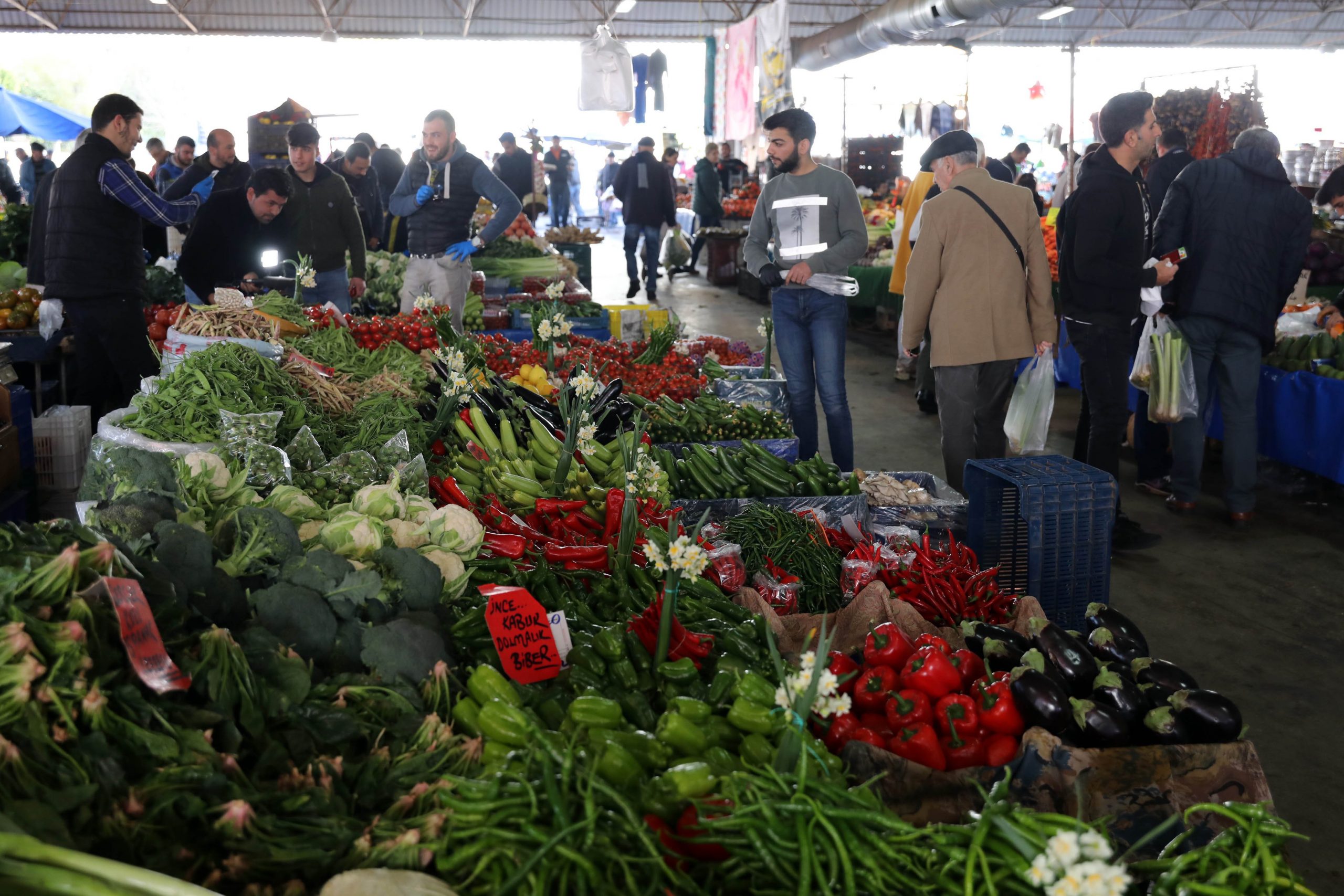Turkey’s consumer price inflation rose less than expected to 12.37% year-on-year in February, official data showed Tuesday.
Month-on-month, consumer prices rose 0.35% in February, according to the Turkish Statistical Institute (TurkStat), marking a climb for the fourth straight month after a dramatic drop last year that opened the door to aggressive rate cuts.
A Reuters poll forecast annual inflation would rise to 12.7% in February. In January, it was 12.15%. The month-on-month figure was also lower than a poll forecast of a 0.65% rise. The median of 22 forecasts in a Bloomberg survey was for 12.7%. A group of 18 economists polled by Anadolu Agency (AA) last week forecast an average annual climb of 12.77%.
Inflation was a pressing issue for the economy in the second half of 2019 when it surged to a 15-year high above 25%. But it has since dropped gradually throughout last year and briefly touched single digits, going all the way down from 20.35% in January to 8.55% in October, thanks mostly to base effects from high volatility in exchange rates in 2018. It closed the year at 11.84% in December.
In response to the hike, the Central Bank of the Republic of Turkey (CBRT) had raised its policy rate to 24%, where it stayed until last July. It has cut rates by 1,325 basis points down to 10.75% since then to boost growth.
“While recent lira weakness and recovering domestic demand conditions exert upward risks ahead, lower global oil prices would work in the opposite direction,” Deutsche Bank AG analysts including Kubilay Öztürk were cited by Bloomberg as saying in a report before the data release.
“Barring any disorderly depreciation in the lira, due to external and geopolitical headlines, we think Turkey’s central bank will carry on with policy easing,” Öztürk added.
The lira firmed slightly after the release of the data, standing at 6.19 against the U.S. dollar at 0715 GMT.
The rise in February inflation was driven by food and non-alcoholic drink prices which surged 2.33% month-on-month, while prices in the health sector were up 2.03%, the data showed.
Clothing and shoe prices declined 4.83% in February, while alcoholic beverage and tobacco prices declined 1.34%.
Alcoholic beverages and tobacco saw the highest year-on-year price increase with 40.15%, while the lowest annual rise was 2.27% in communication, the state-run body said.
The data also showed the producer price index rose 0.48% month-on-month in February for an annual rise of 9.26%. The 12-month average hike in consumer prices was 13.94% as of February, TurkStat data showed.
The inflation rate is expected to hit 8.5% this year, as laid out in the New Economic Program (NEP) for 2020-2022 announced by the government last September.
The CBRT recently reaffirmed its view that inflation will converge gradually this year as it made no changes in its midpoint inflation forecast for the end of this year and next. Policymakers at the bank project inflation at 8.2% in 2020.
A median in the latest Reuters poll expects the year-end figure to stand at 10%. Economists polled by AA predict the year-end annual inflation would be 12.76% on average, with predictions varying between 12.42 and 13.30%.
A separate Reuters poll last month found economists expected the central bank to trim rates to 10% by the end of the year.
Over the last decade, annual inflation saw its lowest level at 3.99% in March 2011, while it peaked at 25.24% in October 2018.










Discussion about this post